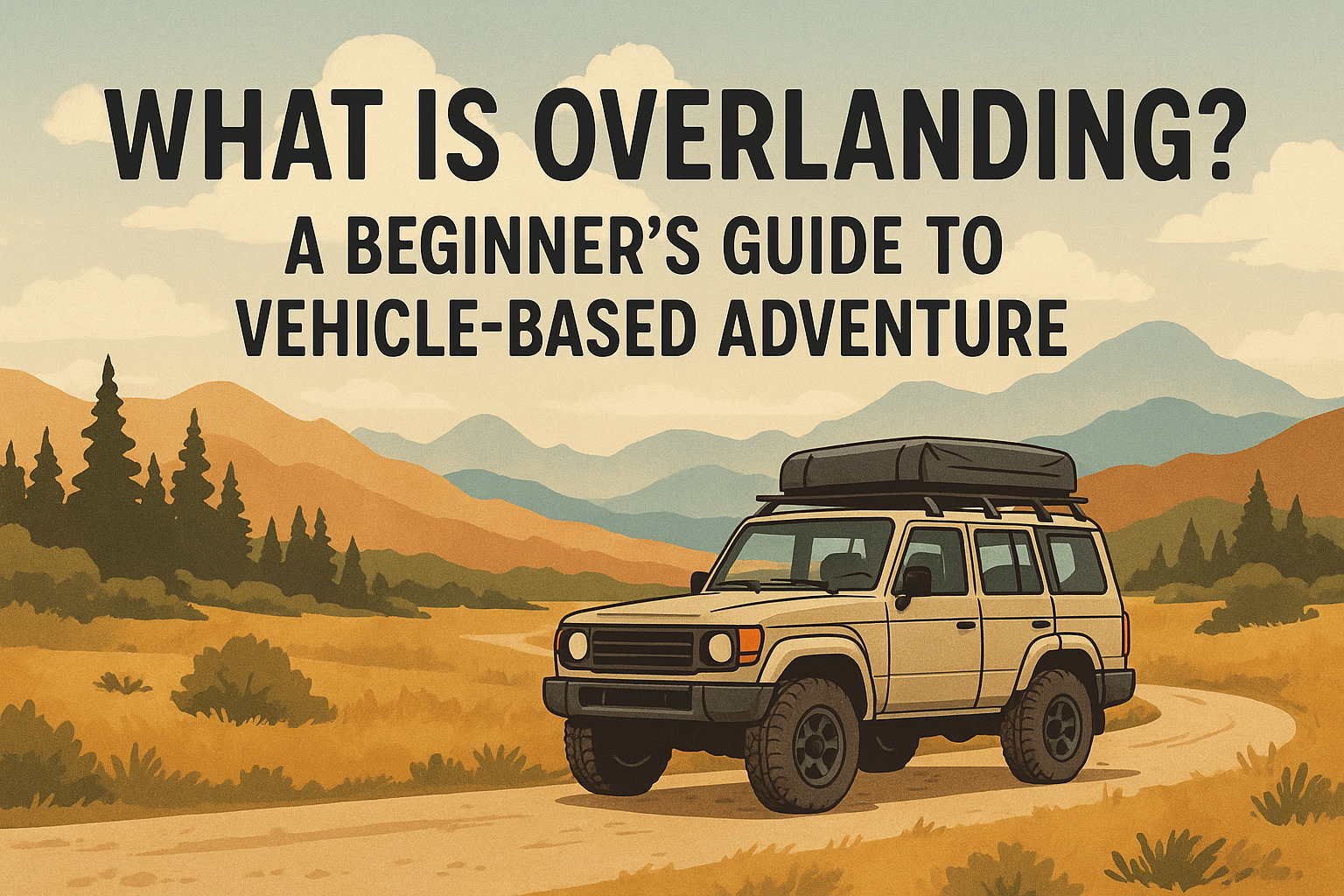Overlanding has rapidly grown from a niche hobby into one of the most inspiring ways to explore the outdoors. But despite its rising popularity, many people still ask one simple question: What exactly is overlanding?
At its core, overlanding is self-reliant, vehicle-based travel to remote and often rugged places where the journey is the main focus, not the destination. Unlike a road trip, which is usually about getting somewhere, overlanding is about the experience of traveling itself — day after day, trail after trail, discovering wild landscapes at your own pace.
Overlanding blends practical skills, outdoor living, navigation, and off-grid independence into a lifestyle of exploration. You carry everything you need, manage your own shelter, food, and water, and stay wherever the natural world allows — from desert BLM land to mountain forest roads and quiet coastal trails.
How Overlanding Differs From Other Ways of Traveling
Not Just Camping
Camping usually means staying in a single designated spot, often with facilities close by. Overlanding includes camping, but it’s mobile. You move frequently and camp in remote areas without services — sometimes for days at a time.
Not Just Off-Roading
Off-roading focuses on challenging terrain and technical driving. Overlanding may include off-road routes, but the goal isn’t adrenaline — it’s progress, navigation, and exploration, even if some trails are mild and scenic.
Not Quite Vanlife
Vanlife emphasizes long-term travel and often comfort and convenience. Overlanding leans more toward rugged independence, wilderness immersion, and being prepared for whatever the land brings.
In the simplest terms:
Vanlife is living out of a vehicle.
Overlanding is exploring with a vehicle.
The Spirit of Overlanding
People choose overlanding for different reasons. For some, it’s an escape from routine and technology. For others, it’s a challenge — learning to navigate unfamiliar terrain, cook outdoors, manage limited supplies, and adapt to nature’s rhythm.
It’s a lifestyle driven by curiosity, self-reliance, and a desire to reconnect with wild places. You learn to improvise, solve problems, and trust yourself. Sunrises feel earned. Silence feels meaningful. Every day holds some unknown ahead of you — and that is part of the reward.
Do You Need a Special Vehicle to Overland?
A big misconception is that you need an expensive, heavily modified 4×4 to start. In reality, most people begin with what they already have — a stock SUV, truck, crossover, or even a wagon with enough ground clearance. Capable tires, water storage, basic recovery gear, navigation tools, and a reliable shelter system are often enough for beginners.
Upgrades come naturally over time, based on real needs — not trends.
Where Can You Go Overlanding?
Overlanding doesn’t require crossing continents. It can be:
- A single night on a quiet forest road
- A long-weekend adventure across desert tracks
- A multi-state route along scenic byways and dirt trails
- Or yes — a months-long international journey
Whether it’s local National Forest land, BLM territory, mountain passes, beach access zones, or rugged wilderness regions, the experience comes from traveling slowly, living simply, and choosing the long way around.
Why Overlanding Is Growing in Popularity
More people are searching for ways to feel free, grounded, and connected to nature. Screens dominate our days; noise fills our lives. Overlanding offers a contrast — fresh air, time, unpredictability, and wilderness.
It’s not just an outdoor hobby.
It’s a return to curiosity and simplicity.
Final Thoughts
So what is overlanding?
It is vehicle-supported exploration, self-reliance, and the pursuit of wild places without a strict destination in mind. It is an invitation to travel slowly, think clearly, live intentionally, and appreciate the small details that modern life often hides.
Whether you start with an overnight forest road trip or dream of crossing entire regions, overlanding is open to anyone with a sense of adventure — and the willingness to step off the predictable path.
Start where you are. Learn as you go. The trail will teach you.
What to read next:
The Psychology of Overlanding – Why Modern People Crave Wilderness Escapes
The Ultimate Beginner’s Guide to Overlanding

